第92章 Chapter 19(3)
It is also a matter of history that Robert Browning had many deep and constant admirers in England,and still more in America,long before this organized interest had developed itself.
Letters received from often remote parts of the United States had been for many years a detail of his daily experience;and even when they consisted of the request for an autograph,an application to print selections from his works,or a mere expression of schoolboy pertness or schoolgirl sentimentality,they bore witness to his wide reputation in that country,and the high esteem in which he was held there.The names of Levi and Celia Thaxter of Boston had long,I believe,been conspicuous in the higher ranks of his disciples,though they first occur in his correspondence at about this date.
I trust I may take for granted Mrs.Thaxter's permission to publish a letter from her.
Newtonville,Massachusetts:March 14,1880.
My dear Mr.Browning:
Your note reached me this morning,but it belonged to my husband,for it was he who wrote to you;so I gave it to him,glad to put into his hands so precious a piece of manu,for he has for you and all your work an enthusiastic appreciation such as is seldom found on this planet:it is not possible that the admiration of one mortal for another can exceed his feeling for you.
You might have written for him,I've a friend over the sea,....
It all grew out of the books I write,&c.
You should see his fine wrath and scorn for the idiocy that doesn't at once comprehend you!
He knows every word you have ever written;long ago 'Sordello'
was an open book to him from title-page to closing line,and ALL you have printed since has been as eagerly and studiously devoured.
He reads you aloud (and his reading is a fine art)to crowds of astonished people,he swears by you,he thinks no one save Shakspere has a right to be mentioned in the same century with you.
You are the great enthusiasm of his life.
Pardon me,you are smiling,I dare say.You hear any amount of such things,doubtless.But a genuine living appreciation is always worth having in this old world,it is like a strong fresh breeze from off the brine,that puts a sense of life and power into a man.
You cannot be the worse for it.
Yours very sincerely,Celia Thaxter.
When Mr.Thaxter died,in February 1885,his son wrote to Mr.Browning to beg of him a few lines to be inscribed on his father's tombstone.
The little poem by which the request was answered has not yet,I believe,been published.
'Written to be inscribed on the gravestone of Levi Thaxter.'
Thou,whom these eyes saw never,--say friends true Who say my soul,helped onward by my song,Though all unwittingly,has helped thee too?
I gave but of the little that I knew:
How were the gift requited,while along Life's path I pace,could'st thou make weakness strong,Help me with knowledge --for Life's old,Death's new!
R.B.
April 19,'85.
A publication which connected itself with the labours of the Society,without being directly inspired by it,was the annotated 'Strafford'
prepared by Miss Hickey for the use of students.It may be agreeable to those who use the little work to know the estimate in which Mr.Browning held it.He wrote as follows:
19,Warwick Crescent,W.:February 15,1884.
Dear Miss Hickey,--I have returned the Proofs by post,--nothing can be better than your notes --and with a real wish to be of use,I read them carefully that I might detect never so tiny a fault,--but I found none --unless (to show you how minutely I searched,)it should be one that by 'thriving in your contempt,'I meant simply 'while you despise them,and for all that,they thrive and are powerful to do you harm.'The idiom you prefer --quite an authorized one --comes to much the same thing after all.
You must know how much I grieve at your illness --temporary as I will trust it to be --I feel all your goodness to me --or whatever in my books may be taken for me --well,I wish you knew how thoroughly I feel it --and how truly I am and shall ever be Yours affectionately,Robert Browning.
From the time of the foundation of the New Shakspere Society,Mr.Browning was its president.In 1880he became a member of the Wordsworth Society.Two interesting letters to Professor Knight,dated respectively 1880and 1887,connect themselves with the working of the latter;and,in spite of their distance in time,may therefore be given together.The poem which formed the subject of the first was 'The Daisy';the selection referred to in the second was that made in 1888by Professor Knight for the Wordsworth Society,with the co-operation of Mr.Browning and other eminent literary men.
19,Warwick Crescent,W.:July 9,'80.
My dear Sir,--You pay me a compliment in caring for my opinion --but,such as it is,a very decided one it must be.On every account,your method of giving the original text,and subjoining in a note the variations,each with its proper date,is incontestably preferable to any other.It would be so,if the variations were even improvements --there would be pleasure as well as profit in seeing what was good grow visibly better.But --to confine ourselves to the single 'proof'
you have sent me --in every case the change is sadly for the worse:
I am quite troubled by such spoilings of passage after passage as I should have chuckled at had I chanced upon them in some copy pencil-marked with corrections by Jeffrey or Gifford:indeed,they are nearly as wretched as the touchings-up of the 'Siege of Corinth' by the latter.If ever diabolic agency was caught at tricks with 'apostolic'achievement (see page 9)--and 'apostolic',with no 'profanity'at all,I esteem these poems to be --surely you may bid it 'aroint''about and all about'these desecrated stanzas --each of which,however,thanks to your piety,we may hail,I trust,with a hearty Thy long-lost praise thou shalt regain Nor be less dear to future men Than in old time!
Believe me,my dear Sir,Yours very sincerely,Robert Browning.
19,Warwick Crescent,W.:March 23,'87.